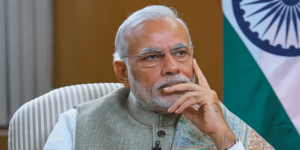The vegan food industry, which was quite nascent until a few years ago, has been on a rise in India. According to a Statista report, 52 percent out of 6,934 people surveyed in 2019 said they were following a plant-based diet. With the increasing awareness around climate change, dairy restrictions, and animal rights, more and more people have taken to a vegan lifestyle.
Until 2015, only a handful of brands offered plant-based non-dairy products. But now, meat alternative brand GoodDO, Epigamia’s coconut and other plant-based yogurts, and Bengaluru-based GoodMylk, are among a plethora of small- and medium-sized firms offering vegan products.
is also one among them.
Growing from mother’s kitchen
Founded in 2016 by sister duo Gayatri Rattha and Shivanie Mirchandani, the dairy and sugar-free ice-cream brand started by selling six flavours — including chocolate, coffee, and strawberry — out of their mother’s home kitchen in Delhi.
Minus30 has 10 SKUs in their retail stores while 55 are available through their online channel
“Our mother had been making food for a long time and some of her dishes were quite famous among our circle. Both I and my sister decided to take her recipe and started selling these ice-creams,” Shivanie, joint CEO and Co-founder of Minus 30, tells YourStory.
A psychology graduate from the University of Nottingham, Shivanie continued to work on her day job as a marketing manager as well as handled a few roles in the budding ice cream business, while her sister Gayatri, the founder and CEO, was on board full-time.
“She even went to Italy to learn how to make proper gelatos,” says Shivanie.
The brand later incorporated Gayatri’s learnings to develop new ice cream and sorbet flavours, including Belgian Chocolate Cointreau, Hazelnut, and Green Tea Matcha.
Business model
Minus 30 chose to take the direct-to-consumer route to sell their products. The sister duo started by circulating messages over WhatsApp in their community, and also set up their own website.
“We directly started selling online because we had an already established network thanks to our mother and her food forays,” says Shivanie.
The brand slowly started to take off. In the first year, Minus 30 used to get five to 10 orders per day, and now, they get 150 orders. The startup completes about 5,000 orders per month.
Shivanie claims the startup saw a major growth, earning a revenue of Rs 3.31 crore last year as compared to Rs 45 lakh a year before that.
She also claims that the s has a repeat purchase rate of about 80 percent.
“We heavily focus on our flavours and quality, and that is what sets us apart,” she says.
The startup promises same and next-day delivery in Mumbai, Delhi, Bengaluru, and Dehradun. To adhere to this timeline, Minus 30 has an in-house delivery channel with 25 delivery personnel across four cities.
Credit: YourStory Design
Competition and the future
Many D2C brands including nutrition brand Oziva, Noida-based Vahdam Teas, and headphone brand Boat, either took a digital-first approach or an omnichannel route to sell their products in their initial years.
For many of these brands, the D2C route provides an alternative since they are relatively unknown when they start up, and not many retail store owners give them shelf space. Another huge challenge for new brands is in having a rotating inventory.
After getting some scale in the online channel Minus 30 entered retail stores in 2018. It is currently present in Delhi, Mumbai, Chennai, Punjab, and Gujarat, and six other states and is looking into a pan-India expansion.
It competes with WEH Ventures-backed ice-cream brand NOTO, and Delhi-based Habbit Health, among others.
While she didn’t reveal the specifics, Shivani says the startup has also increased its marketing budget for social media advertising, and also plans to advertise on TV.
The D2C sector as a whole saw a major boom during the pandemic as at-home bored consumers were flocking on digital channels to stream, play games, and shop. While babycare brand Mamaearth saw its valuation reach over $700 million, SUGAR Cosmetics and Vahdam Teas hit Rs 100 crore in revenue.
YourStory’s flagship startup-tech and leadership conference will return virtually for its 13th edition on October 25-30, 2021. Sign up for updates on TechSparks or to express your interest in partnerships and speaker opportunities here.
For more on TechSparks 2021, click here.
Applications are now open for Tech30 2021, a list of 30 most promising tech startups from India. Apply or nominate an early-stage startup to become a Tech30 2021 startup here










